Standing by: Govt stands helpless as illicit trade grows
Higher taxes and loose enforcement only help menace.
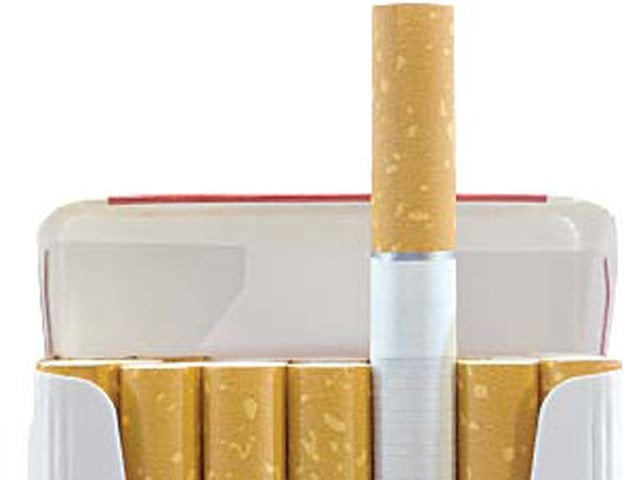
Pakistan’s legal domestic sales declined notably to 64 billion cigarettes in 2012 compared with 70 billion sticks in 2009.
Despite having a robust regulatory framework, it seems the federation continues to face problems in fighting illicit tobacco trade, which still accounts for more than a quarter of the country’s total cigarette consumption.
Illicit tobacco trade refers to the business of smuggled or counterfeit cigarettes, or other tobacco products that are sold without paying applicable duties and taxes.
Several agencies including Inland Revenue Intelligence, Customs Intelligence, Police, Federal Investigation Agency and the Rangers are fighting this menace. This illegal business, however, accounts for 25% of the country’s total cigarette sales, according to an international study titled ‘Asia-11: Illicit Tobacco Indicator 2012’.
Illicit cigarette trade cost the exchequer $275 million in fiscal year 2013 (FY13), the report said. Pakistan’s legal domestic sales, it said, declined notably to 64 billion cigarettes in 2012 compared with 70 billion sticks in 2009.

“Illicit cigarette trade, which promotes tax evasion, counterfeiting and cross-border smuggling, presents a complex problem for the government and the legitimate industry,” market leader Pakistan Tobacco Company (PTC) said. “There are national security considerations also as illicit cigarette trade is known to have, direct or indirect, linkages with organised crime,” it said.
The tax applied on the retail price of each packet of cigarettes ranges between 68.5% and 81%, increasing the cost of legal cigarettes against the illicit ones that evade all duties and taxes, say industry sources.
Tobacco is the second largest tax-paying sector after oil and gas, accounting for 36% of the total federal excise duty. Both PTC and Phillip Morris Pakistan (PMP), the second largest player, account for 99.7% of total tax revenues from cigarette sales – the legitimate industry paid Rs76.5 billion in FED and sales tax during FY13.
Lax enforcement by the government coupled with high taxation creates an anti-competitive market, said an official requesting anonymity. The illicit trade cost the industry an estimated Rs6 billion in potential revenue loss during FY13, according to Euromonitor, a global research firm for consumer markets.
The Pakistan Peoples Party’s government for example had increased taxes seven to eight times in its tenure, the official said. Data compiled by Oxford Economics for the rate of tax applied each January on the most sold brand showed an increase of 38% in January, 2009 and 28% in January 2010.
Most illicit cigarettes are priced much lower than their legal counterparts and generally do not adhere to mandatory public health regulations, and are thus poised to lure new smokers and target impressionable youth, the official said. The purpose of high taxation is to make smoking expensive for the youth but the fact is that stick sales (loose cigarettes) are 30% of the total cigarette sales, killing the purpose.
“The sale of illicit cigarettes is detrimental both to the Federal Bureau of Revenue (FBR) in terms of lost government revenues and to the legitimate industry in the shape of uncompetitive markets,” the tax watchdog said in response to our queries. The FBR is trying to minimise and ultimately eliminate this menace, it said.
The Directorate General Intelligence and Investigation, Inland Revenue has created Anti-Illicit Trade Mobile Teams at the field offices in Peshawar, Lahore, Faisalabad, Islamabad and Karachi, the exchequer said.
The FBR has also launched an awareness campaign, warning wholesalers, dealers and retailers through letters and the media, created a helpline at Islamabad headquarters to collect intelligence about the premises of counterfeit cigarettes and ensure swift action.
The FBR claimed to have detected the network of the illicit tobacco trade and conducted raids, which led to seizure of Non-duty paid/counterfeit cigarettes. As a result, it said, the sale of legal cigarettes has increased. The revenues received from the tobacco sector increased by Rs6 billion in FY12 and Rs10 billion in FY13, it said. In the last two years, the FBR seized more than 5 million sticks. Recently, a huge seizure was made in Lahore where more than one million sticks were seized.
The FBR is an under-financed and under-powered body with no security for its personnel that face security threats, an industry official said. In one incident in Karachi, he said, their mobile team faced resistance upon chasing a Pine consignment; they were beaten and hospitalised.
The FBR in its official response also confirmed their teams face great personal risk. “At certain places, the drive against the illicit cigarette traffickers was taken to the doors of the culprits and Directorate General’s team even suffered injuries at the hands of the culprits. Despite this, the drive is pursued with full force,” the FBR said.
The enforcement must be persistent and resolute and there should be an incentive system for law enforcement agencies, Phillip Morris said in a statement. “A dedicated task force should be established to fight illicit tobacco products at the borders and inside the country,” it suggested.
Responding to a question, PMP said, “Law enforcement agencies and judiciary personnel should be trained in fighting illicit trade and criminal networks importing and distributing illicit cigarettes.”
Published in The Express Tribune, January 27th, 2014.
Like Business on Facebook, follow @TribuneBiz on Twitter to stay informed and join in the conversation.


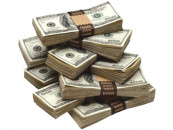

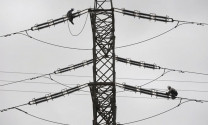




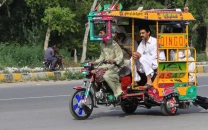


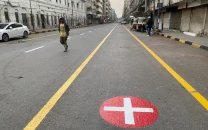






COMMENTS
Comments are moderated and generally will be posted if they are on-topic and not abusive.
For more information, please see our Comments FAQ